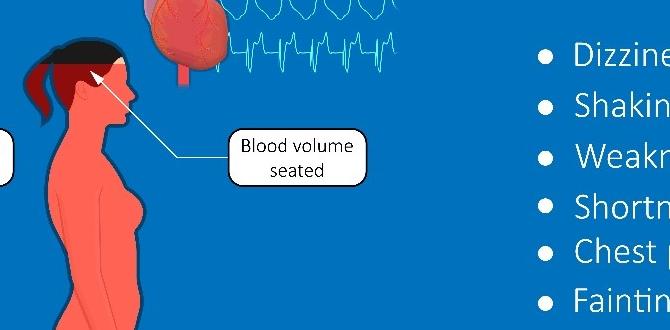Imagine walking through a colorful vegetable garden. The air smells fresh, and the plants are full of life. But did you know that the secret to a thriving garden lies in its nutrients? Nutrients for vegetable gardens are like magic food for plants. They help them grow strong and healthy.
Have you ever wondered why some gardens flourish while others struggle? The answer often comes down to the right balance of nutrients. Just like we need vitamins and minerals, plants need their own special foods. These can come from soil, compost, and even fertilizers.
Here’s a fun fact: some vegetable plants can actually help each other grow better when they share the same space! This is called companion planting, and it often depends on the nutrients they provide one another. Curious about how to get the best results in your garden? Let’s explore the different nutrients that help your vegetables thrive!
Essential Nutrients For Vegetable Gardens: Your Guide To Success
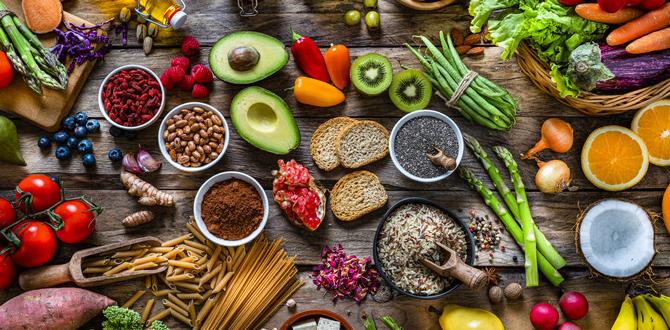
Nutrients for Vegetable Gardens
Nutrients are crucial for a thriving vegetable garden. They help plants grow strong and tasty. Did you know that nitrogen, phosphorus, and potassium are the main nutrients? Nitrogen boosts leaf growth, phosphorus supports root health, and potassium enhances fruit quality. Using compost is a simple way to add these nutrients naturally. Have you ever tasted a homegrown tomato? It’s often sweeter and juicier because it had the right nutrients! Understanding and providing these essentials can transform your garden into a lush paradise.Understanding Soil Nutrients
Importance of soil health for vegetable growth. Key nutrients: macronutrients vs. micronutrients.
Healthy soil is like a superhero for your veggies. It provides the right nutrients they need to grow big and strong. Keep your soil happy, and you’ll have crunchy carrots and ripe tomatoes. There are two types of nutrients to know: macronutrients and micronutrients. Think of macronutrients as the “big” guys that plants need in large amounts, like nitrogen, phosphorus, and potassium. Micronutrients, on the other hand, are the tiny sidekicks, like iron and zinc, needed in smaller quantities but are just as important!
| Type of Nutrient | Description |
|---|---|
| Macronutrients | Needed in large amounts for healthy growth. |
| Micronutrients | Required in tiny amounts but crucial for plant health. |
Essential Macronutrients for Vegetables
Nitrogen: Role in plant growth and development. Phosphorus: Importance for root and flower development. Potassium: Contribution to overall plant health.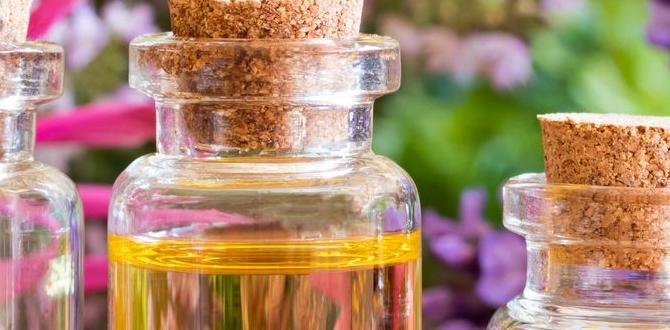
Nitrogen is like a plant’s best friend! It helps them grow tall and strong. Plants use nitrogen to make leaves and stems, letting them soak up sunlight. Phosphorus plays a key role, too. It encourages roots to dig deep and helps flowers bloom. Finally, we have potassium, the superhero of plant health. It keeps plants strong against pests and diseases. Think of these nutrients as the “ABC” of healthy veggies!
| Nutrient | Role |
|---|---|
| Nitrogen | Promotes leaf and stem growth |
| Phosphorus | Supports root and flower development |
| Potassium | Enhances overall plant health |
Organic vs. Synthetic Nutrients
Differences between organic and synthetic fertilizers. Advantages and disadvantages of each type.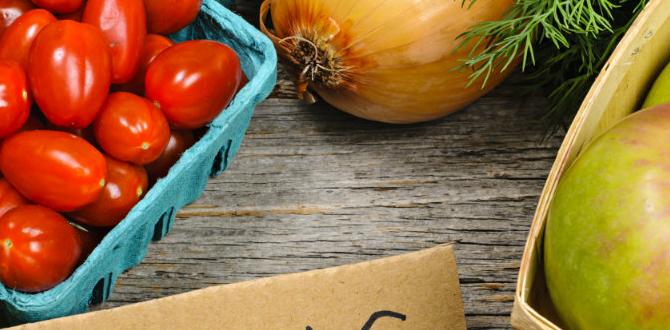
There are two main types of fertilizers for your garden: organic and synthetic. Organic fertilizers come from natural sources, like plants or animals. They can improve soil health over time. Synthetic fertilizers, however, are man-made and provide quick results. But be careful! Too much synthetic fertilizer can harm your plants. Here’s a quick comparison:
| Type | Advantages | Disadvantages |
|---|---|---|
| Organic | Natural, enriches soil health | Slower results |
| Synthetic | Fast-acting, easy to use | Can damage soil life |
So, choose wisely! Your plants will thank you, and hey, they may even grow a bit taller to give you a friendly wave!
Testing and Amending Soil Nutrients
How to test soil nutrient levels. Recommended practices for amending soil nutrients.
To check the nutrients for vegetable gardens, start with soil tests. You can buy a test kit at a garden store or send a sample to a lab. Follow the kit’s instructions closely. This tells you what nutrients your soil has. If your soil lacks important nutrients, it’s time to amend it. Here are some common ways:
- Add compost to enrich soil.
- Use fertilizers to boost nutrients.
- Mix in organic matter like leaf mold.
- Plant cover crops to improve soil health.
Amending soil can help grow strong plants and delicious vegetables.
How can I test my soil nutrient levels?
You can test your soil using a simple test kit or send a sample to a lab. The kit will show nutrient levels to help your garden thrive.
Best Practices for Nutrient Management in Vegetable Gardens
Crop rotation techniques for nutrient replenishment. Companion planting and its effects on nutrient availability.
Nurturing your vegetable garden starts with understanding how to manage nutrients. Crop rotation is a smart technique; swapping plants each season keeps the soil healthy. Certain veggies can pull nutrients while others replace them. Companion planting also plays a role. When you grow some plants together, they help each other. For example, beans fix nitrogen, enriching the soil. Combining these practices leads to a strong and fruitful garden.
What is crop rotation in gardening?
Crop rotation involves changing the type of plants grown in a garden each season to help restore nutrients in the soil.
Benefits of Crop Rotation:
- Prevents soil depletion
- Reduces pests and diseases
- Improves soil structure
How does companion planting affect nutrient availability?
Companion planting helps plants grow better together, adding nutrients back to the soil and even deterring pests.
Examples of Good Companions:
- Tomatoes and basil
- Carrots and onions
- Beans and corn
Timing and Frequency of Fertilization
Ideal times for applying nutrients during the growing season. Signs that vegetables need additional nutrients.Applying nutrients at the right time is crucial for healthy vegetable gardens. Aim to fertilize your plants at the beginning of the growing season and again when they start to flower. Watch for signs such as yellowing leaves or stunted growth; these could mean your veggies are waving a tiny flag, asking for help! You wouldn’t ignore a friend in need, right?
| Signs Your Vegetables Need Nutrients | Action |
|---|---|
| Yellowing leaves | Add nitrogen-rich fertilizer |
| Slow growth | Consider a balanced fertilizer |
| Blossoms dropping | Check for potassium levels |
By monitoring these signs and timing your fertilization correctly, your vegetable garden will thrive like a well-fed superhero!
Natural Solutions for Nutrient Enhancement
Utilizing compost and organic matter. Benefits of cover crops for nutrient retention.Compost and organic matter are fantastic for your garden. They add important nutrients back into the soil. This helps plants grow strong and healthy. Using compost also improves soil structure. This means better water retention and drainage. Cover crops, like clover or rye, grow during off-seasons. They protect the soil and keep nutrients from washing away. Plus, they add even more nutrients when turned into the soil.
- Compost enriches soil with essential nutrients.
- Cover crops help prevent soil erosion.
- Both methods support healthier plant growth.
What are cover crops and how do they help?
Cover crops are plants grown mainly to improve soil health. They help hold nutrients in place and prevent erosion. Using them can save farmers money on fertilizers.
Common Nutrient Deficiency Symptoms in Vegetables
Identifying and diagnosing nutrient deficiencies. Remedies for common deficiencies in vegetable gardens.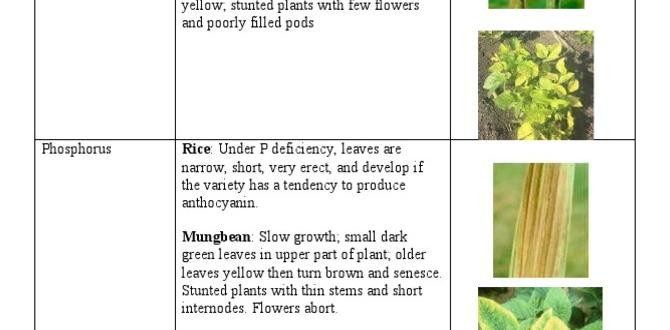
Nutrient shortages can make your veggies look sad. Here’s how to spot them:
- Yellow leaves may mean they lack nitrogen.
- Pale or purple leaves might show a phosphorus deficiency.
- Stunted growth can indicate a potassium shortage.
To help these plants, you can add the right fertilizers. For nitrogen, use compost or chicken manure. For phosphorus, rock phosphate works well. Lastly, for potassium, try banana peels. With the right care, your garden will thrive!
What are the signs of nutrient deficiencies in vegetable plants?
Some common signs include yellowing leaves, stunted growth, and leaf drop. Observing these changes can help you quickly identify problems and treat them, ensuring your veggies stay healthy and strong.
Understanding nutrient deficiencies helps ensure your vegetable garden stays vibrant. By knowing how to recognize these issues and applying the right solutions, you’re on your way to a flourishing harvest!
Conclusion
In summary, nutrients are vital for healthy vegetable gardens. They help plants grow strong and produce tasty vegetables. Remember to use compost, fertilizers, and soil testing to give your garden the nutrients it needs. You can also read more about plant food and gardening tips. Let’s get started on creating your best vegetable garden yet!FAQs
Sure! Here Are Five Questions Related To Nutrients For Vegetable Gardens:Sure! Here are five questions related to nutrients for vegetable gardens: 1. **What are nutrients?** Nutrients are special materials that plants need to grow strong and healthy. They help plants make food, grow roots, and produce vegetables. 2. **Why do vegetables need nutrients?** Vegetables need nutrients to grow properly. Without them, they can get weak and not produce tasty food. 3. **How can you tell if your soil is healthy?** You can check your soil by seeing if it is dark and crumbly. Healthy soil also has earthworms and good smells! 4. **What can you add to the soil for nutrients?** You can add compost, which is made from rotting plants and food scraps. It gives the soil lots of good nutrients! 5. **When should you feed your plants nutrients?** You should feed your plants when you first plant them and again during their growing time. This helps them stay strong!
Sure! Please provide the question you would like me to answer.
What Essential Nutrients Do Vegetable Plants Require For Optimal Growth And Development?Vegetable plants need important nutrients to grow well. They need nitrogen for healthy leaves. Phosphorus helps their roots and flowers. Potassium makes them strong and tasty. They also need water and sunlight to stay happy and healthy!
How Can Soil Testing Help Gardeners Determine The Nutrient Needs Of Their Vegetable Garden?Soil testing helps you find out what your soil needs. It checks for important nutrients, like nitrogen and potassium. When you know what’s missing, you can add the right fertilizers. This helps your vegetables grow strong and healthy. It also saves you money, so you buy only what you need!
What Are The Benefits Of Using Organic Fertilizers Compared To Synthetic Fertilizers In Vegetable Gardening?Using organic fertilizers helps keep our soil healthy. They feed the plants slowly, so they grow strong over time. Organic fertilizers also improve the soil by adding more good stuff, like worms and bugs that help plants. Plus, many people think organic veggies taste better and are safer to eat. We care about our planet, and organic fertilizers are better for it too!
How Can Crop Rotation Impact The Nutrient Levels In The Soil For Future Vegetable Plantings?Crop rotation means changing the type of plants you grow each year. This helps keep the soil healthy and full of nutrients. Different plants take different nutrients from the soil. When we rotate crops, we avoid draining the soil of any one nutrient. This way, the soil stays rich for future vegetables!
What Specific Nutrient Deficiencies Should Gardeners Look Out For, And What Are The Signs And Remedies For Those Deficiencies?Gardeners should watch for three main nutrient deficiencies: nitrogen, phosphorus, and potassium. If plants are yellow and stunted, they might lack nitrogen. You can fix this by adding compost or fertilizer. For phosphorus, look for dark green leaves with purple spots. Adding bone meal or rock phosphate can help. If leaves turn brown and crispy, the plants might need potassium. Use a fertilizer that has potassium in it. Remember, healthy plants grow better!
{“@context”:”https://schema.org”,”@type”: “FAQPage”,”mainEntity”:[{“@type”: “Question”,”name”: “Sure! Here Are Five Questions Related To Nutrients For Vegetable Gardens:”,”acceptedAnswer”: {“@type”: “Answer”,”text”: “Sure! Here are five questions related to nutrients for vegetable gardens: 1. **What are nutrients?** Nutrients are special materials that plants need to grow strong and healthy. They help plants make food, grow roots, and produce vegetables. 2. **Why do vegetables need nutrients?** Vegetables need nutrients to grow properly. Without them, they can get weak and not produce tasty food. 3. **How can you tell if your soil is healthy?** You can check your soil by seeing if it is dark and crumbly. Healthy soil also has earthworms and good smells! 4. **What can you add to the soil for nutrients?** You can add compost, which is made from rotting plants and food scraps. It gives the soil lots of good nutrients! 5. **When should you feed your plants nutrients?** You should feed your plants when you first plant them and again during their growing time. This helps them stay strong!”}},{“@type”: “Question”,”name”: “”,”acceptedAnswer”: {“@type”: “Answer”,”text”: “Sure! Please provide the question you would like me to answer.”}},{“@type”: “Question”,”name”: “What Essential Nutrients Do Vegetable Plants Require For Optimal Growth And Development?”,”acceptedAnswer”: {“@type”: “Answer”,”text”: “Vegetable plants need important nutrients to grow well. They need nitrogen for healthy leaves. Phosphorus helps their roots and flowers. Potassium makes them strong and tasty. They also need water and sunlight to stay happy and healthy!”}},{“@type”: “Question”,”name”: “How Can Soil Testing Help Gardeners Determine The Nutrient Needs Of Their Vegetable Garden?”,”acceptedAnswer”: {“@type”: “Answer”,”text”: “Soil testing helps you find out what your soil needs. It checks for important nutrients, like nitrogen and potassium. When you know what’s missing, you can add the right fertilizers. This helps your vegetables grow strong and healthy. It also saves you money, so you buy only what you need!”}},{“@type”: “Question”,”name”: “What Are The Benefits Of Using Organic Fertilizers Compared To Synthetic Fertilizers In Vegetable Gardening?”,”acceptedAnswer”: {“@type”: “Answer”,”text”: “Using organic fertilizers helps keep our soil healthy. They feed the plants slowly, so they grow strong over time. Organic fertilizers also improve the soil by adding more good stuff, like worms and bugs that help plants. Plus, many people think organic veggies taste better and are safer to eat. We care about our planet, and organic fertilizers are better for it too!”}},{“@type”: “Question”,”name”: “How Can Crop Rotation Impact The Nutrient Levels In The Soil For Future Vegetable Plantings?”,”acceptedAnswer”: {“@type”: “Answer”,”text”: “Crop rotation means changing the type of plants you grow each year. This helps keep the soil healthy and full of nutrients. Different plants take different nutrients from the soil. When we rotate crops, we avoid draining the soil of any one nutrient. This way, the soil stays rich for future vegetables!”}},{“@type”: “Question”,”name”: “What Specific Nutrient Deficiencies Should Gardeners Look Out For, And What Are The Signs And Remedies For Those Deficiencies?”,”acceptedAnswer”: {“@type”: “Answer”,”text”: “Gardeners should watch for three main nutrient deficiencies: nitrogen, phosphorus, and potassium. If plants are yellow and stunted, they might lack nitrogen. You can fix this by adding compost or fertilizer. For phosphorus, look for dark green leaves with purple spots. Adding bone meal or rock phosphate can help. If leaves turn brown and crispy, the plants might need potassium. Use a fertilizer that has potassium in it. Remember, healthy plants grow better!”}}]}





